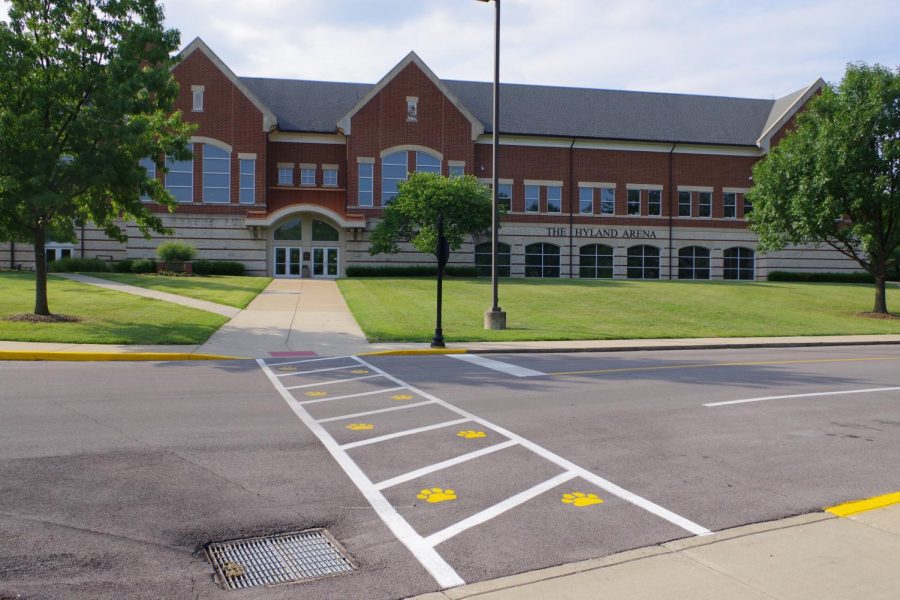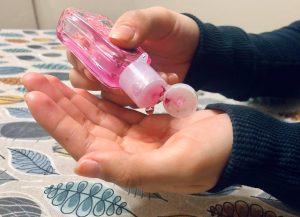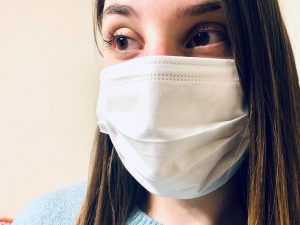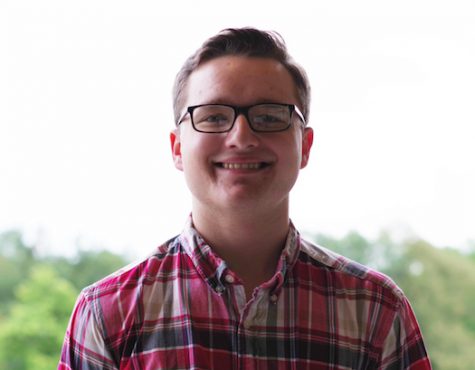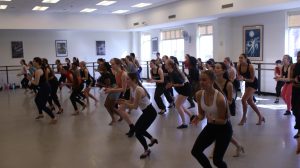Lindenwood temporarily switches to online-only due to coronavirus
The Hyland Arena. Lindenwood will switch to online classes until March 30 because of the Coronavirus.
Stock photo by Kat Owens.
March 11, 2020
Updated Thursday, March 12 with comments from professors.
Updated Friday, March 13 at 3:37 p.m. with comment from associate provosts.
Lindenwood University posted an update on its website Wednesday saying the school will switch to online classes until March 30 to prevent the spread of the COVID-19 pandemic.
The announcement urged students not to return to campus after spring break if possible.
“Campus leadership stresses that there are no confirmed cases of COVID-19 among Lindenwood students, faculty, or staff,” the website update stated. “This action is designed to reduce the likelihood of the virus’ spread by decreasing the density of population on Lindenwood’s campuses in St. Charles, Mo., and Belleville, Ill.”
Shortly afterward, Lindenwood sent out an email from University President John Porter announcing the switch to virtual classes.
Details about campus policies during the partial shutdown are available here.
According to the announcement, Porter said Lindenwood will re-assess the situation to decide if it will extend its suspension of in-person classes after March 30.
Molly Hudgins, associate provost for curriculum and experiential learning, said a team of Lindenwood leaders and administrators will meet again Monday to discuss future steps.
Visitation in campus housing will not be allowed March 16-30.
Lindenwood is the sixth university in the St. Louis area to postpone or suspend in-person classes because of the coronavirus, a respiratory disease which originated in Wuhan, China. According to St. Louis Public Radio, Maryville University, Washington University, Saint Louis University, Webster University, and Harris-Stowe State University have decided to halt in-person classes until at least March 21.
Washington University suspended in-person classes until April 30 and told resident students to leave campus by Sunday, according to a letter from the chancellor.
None of the universities have confirmed cases of COVID-19, but there has been one confirmed case in St. Louis County. According to KSDK, fears of the virus also caused St. Louis to postpone its St. Patrick’s Day parade.
Lindenwood campus events scheduled March 13 to 29 have been cancelled or postponed, except for athletic games, which will continue with attendance limited to athletes, family members, coaches, and related employees.
Ricardo Delgado, dean of the School of Sciences, said faculty are working out ways to replace labs and other elements of in-person learning that are hard to convey online. Solutions may differ from class to class, and can include moving lab sessions later in the semester or using “dry” or “paper” labs, in which students do not perform experiments, but write lab reports based on data they are given.
Delgado said he is hopeful that in-person classes will be able to resume soon. Face-to-face discussions are crucial to help students understand science, and practical application of skills helps prepare students for their careers and higher-level classes, he said.
“I would hate to lose that, even for just one semester,” Delgado said. “If it has to happen, we’ll do our best to provide what we can, but I’m not too worried about that right now because […] we are being very proactive about what we need to do [to prevent the spread of COVID-19].”
Rich Reighard, a mass communications professor, said the shift to online classes will not be a problem for lecture classes he teaches, but it will be “a real pain in the you-know-what” for courses which involve students learning to use broadcast hardware and software, such as the class that produces LUTV.
“It’s a bit tougher to lean over somebody’s shoulder and point them in the right direction if there’s no actual shoulder to lean over,” he said in an email.
Reighard said he and other professors are re-arranging the syllabus to postpone live LUTV broadcasts after March 30.
Faculty may work from campus, but are not required to. Staff and academic administrators are required to report to campus. Regarding student-workers, the website says the following:
- Critical student employees will be requested report to work. Critical student employees who opt not to work during the period of March 16- 30, 2020, will not be penalized.
- All non-critical student workers will be given the option to work, but are encouraged to remain off campus.
- Student workers who choose to work should expect to be re-purposed to critical positions on campus.
According to Erin Mann, associate provost for academic operations, a majority of faculty are already online-trained, and Lindenwood is providing resources and training to faculty to assist in the switch to online classes.
Dining facilities will serve take-out meals only, and campus facilities will have limited hours. Lindenwood will also suspend all university travel, including athletic trips, except for travel the university administration approves.
Angie Royal, director of Student Involvement, sent out an email saying Student Involvement will remain open, but all student organization events are canceled March 16-29.
“For those whose events and meetings have to be canceled, I am so very sorry,” she said in the email. “This is heartbreaking for all of us. But we do have to keep you safe and healthy!”
On March 5, Lindenwood released policies requiring that students, faculty, or staff returning to campus from China, Italy, Iran, Japan, or South Korea will have to self-quarantine off-campus for 14 days. The Centers for Disease Control and Prevention have warned against travel to these five high-risk countries.
Lindenwood has cancelled study abroad programs in Italy, China, and South Korea. It will continue to monitor current and upcoming programs, and may have to cancel or relocate study abroad trips depending on the coronavirus situation.
According to an email from Dean of Students Shane Williamson on March 2, Lindenwood is disinfecting high-traffic campus buildings over spring break.
Because COVID-19 can have similar symptoms to the flu, the email told students to go to the Student Health Center in Evans Commons if they experience flu symptoms.
This is a developing story, and it will be updated as more information becomes available.
Editor’s note: A previous version of this article failed to include the title of Erin Mann, associate provost for academic operations. I apologize for the error.



